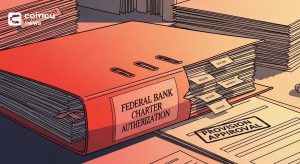Brazilian Authorities Seize $1.6B in Crypto and Fiat in Major Crackdown

Key Points:
- Brazilian police froze $1.6 billion in crypto and fiat during a nationwide crackdown.
- Criminal groups laundered $9.8 billion using crypto over three years.
- Shell companies were used to hide funds linked to drug trafficking and human smuggling.
Brazilian Police Seize $1.6 Billion in Crypto and Fiat.
Brazilian officials have seized cryptos and fiat currencies worth the equivalent of $1.6 billion in a major operation against international money laundering. Operation Niflheim is named after this joint operation between the Federal Police (PF and the Federal Revenue Service. Because investigations are still unfolding, the total amount that has been frozen may possibly reach 9 billion real ($1.8 billion).
Authorities have now discovered that crime groups have laundered some 55 billion real, or $9.8 billion, over the past three years using crypto assets. The cash was moved around in a web of crypto wallets and bank accounts to recipients across China, the UAE, the United States, and Hong Kong.
Criminal Networks and Shell Companies Uncovered
The investigation has revealed that the criminal groups operated shell companies to obscure the source of illicit money. These funds were significantly linked to drug trafficking and human smuggling operations. The groups had accordingly layered their financial activities to make it tough for any law enforcer to trace the money.
They were done in various cities like Caxias do Sul, São Paulo, Brasília, and even the United States. The police managed to seize various cars, real estates, and other important belongings of these groups. They also issued several arrest warrants against some of the main suspects whose network they established to have connections in Orlando, Florida.
Future Regulatory Implications
The operation’s scale highlights the challenges authorities face in combating criminal activities involving crypto assets. Law enforcement will likely soon implement stricter mechanisms for tracing illicit virtual transactions and money laundering.
Organized crime groups increasingly exploit the decentralized nature of cryptocurrencies. Success in Operation Niflheim may encourage other countries to develop methods for tracking and controlling these illegal financial activities.
| DISCLAIMER: The information on this website is provided as general market commentary and does not constitute investment advice. We encourage you to do your own research before investing. |






















